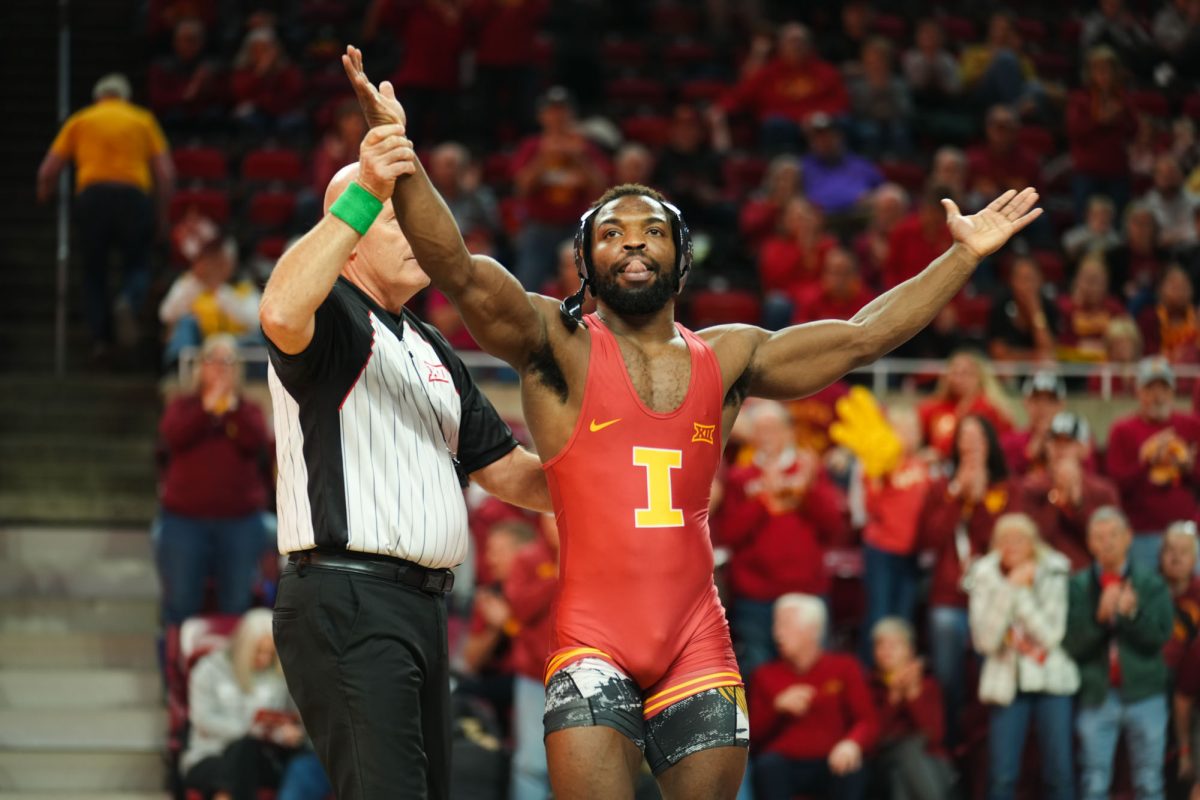Obama speaks on debt impasse as GOP considers bill changes
July 29, 2011
WASHINGTON — Frustrated by continued delays in the House, President Obama urged Senate members Friday to reach a deal to increase the country’s debt ceiling.
“We are almost out of time,” he said.
Republican leaders in the House pulled their plan back from consideration on Thursday when it became clear they did not have the votes to pass it. GOP leaders will try to bring Speaker John Boehner’s bill to a vote again by the end of the day.
But Obama said the bill being pursued in the House “does not solve the problem and it holds no chance of becoming law.”
The delayed vote on the measure — already pronounced dead on arrival in the Democratic-controlled Senate — revealed a deep rift within the GOP that could undermine the party’s latest attempt to avoid an unprecedented national default and stave off potential economic catastrophe.
Boehner, R-Ohio, spent much of Thursday night trying to assuage unhappy tea party-backed conservatives who believe his proposal doesn’t do enough to cut spending and reduce the size of the federal government. The speaker may try to make the plan more appealing to conservatives by including a provision requiring congressional passage of a balanced budget amendment to the Constitution before the debt ceiling is extended through the end of 2012, according to a House GOP source familiar with the negotiations.
The entire House Republican caucus is scheduled to meet behind closed doors at 9 a.m. CT. Senate Democrats are planning to meet at the same time.
Regardless of the changes, few if any Democrats are expected to back the GOP measure. Assuming House Democrats remain united against the bill, Boehner will need the support of at least 216 of the chamber’s 240 Republicans.
Failure to pass the bill could prove to be a crippling setback for the speaker, who only assumed his post in January. In particular, it would prove Boehner unable to control the tea party conservatives elected in last year’s GOP electoral tidal wave.
Senate Democrats, meanwhile, are prepared to quickly vote down Boehner’s proposal if it passes the House. Senate Majority Leader Harry Reid, D-Nev., has been pushing his own plan to raise the debt limit, though he will need to win over at least seven Senate Republicans to win the 60 votes necessary to overcome a certain filibuster.
Reid announced Friday morning that he intends to “take action” on a Senate bill by the end of the day.
“We cannot wait for the House any longer,” Reid said. “No matter how long Republicans delay, the deadline will not move. We have hours — I repeat, hours — to act.”
Senate Minority Leader Mitch McConnell, R-Ky., accused Senate Democrats of doing little to actually resolve the crisis.
“I would suggest to my friends on the other side … that they start taking their responsibilities as a majority party a little more seriously, because at this point, the only people who are disregarding the consequences of default are Senate Democrats — not the Republicans in the House — but them,” McConnell said.
As the political maneuvering continues, the clock continues to tick down. If Congress fails to raise the current $14.3 trillion debt ceiling by August 2, Americans could face rising interest rates and a declining dollar, among other problems.
Some financial experts have warned of a downgrade of America’s triple-A credit rating and a potential stock market plunge. The Dow Jones Industrial Average dropped for a fifth straight on Thursday.
Without an increase in the debt limit, the federal government will not be able to pay all its bills next month. President Obama recently indicated he can’t guarantee Social Security checks will be mailed out on time.
Leaders of both parties now agree that any deal to raise the debt ceiling should include long-term spending reductions to help control spiraling deficits. But they differ sharply on both the nature and timetable of the cuts. Republicans are seeking another vote on the debt ceiling before the 2012 election; Democrats call the demand a political nonstarter and economically destabilizing.
The mood at the White House was described as one of frustration after Thursday’s vote postponement in the House, according to an administration official, who said another day was lost without progress on the issue.
Obama has been “getting no sleep” in recent days as he tries to find a way to break the impasse, a senior administration official said.
White House Chief of Staff Bill Daley said Thursday that, presuming the Boehner plan wins House approval and gets blocked in the Senate, the next step is for everyone “to take a step back in the Congress and look at where is a point of compromise.”
Daley said that similarities between the Boehner plan and Reid’s plan “may be the grounds for a deal that, hopefully, both parties can pass.”
Both the House and Senate planned to work through the weekend, and officials say ongoing behind-the-scene talks will continue.
Beneath the harsh partisan rhetoric, there have been signs of a growing recognition of a need for further compromise. McConnell called Tuesday for renewed negotiations with Obama, and indicated that his party must be willing to move away from some of its demands.
Sources close to the negotiations have said that Vice President Joe Biden is very much in the mix of the back-channel conversations that are occurring on a possible fallback position.
Obama made a nationally televised plea for compromise Monday night.
The Boehner and Reid plans both suffered setbacks earlier this week when the nonpartisan Congressional Budget Office released reports concluding that they fell short of their stated deficit reduction goals.
Specifically, the CBO concluded that Boehner’s plan would cut spending by $850 billion rather than the $1.2 trillion proponents claimed it would save, which was below the $900 billion increase in the debt ceiling included in the measure.
Boehner has since revised his plan, and the CBO now estimates it would generate a total of $917 billion in savings over the next decade, an increase of about $65 billion over the initial version.
With the revisions, Boehner’s proposal now meets his pledge to match any debt ceiling hike with dollar-for-dollar spending cuts.
Boehner’s plan would require two separate votes by Congress, allowing for a combined debt ceiling increase of up to $2.5 trillion. In addition to imposing nearly $1 trillion in spending reductions, it would create a special congressional committee to recommend additional savings of $1.6 trillion or more.
Any failure on the part of Congress to enact mandated spending reductions or abide by new spending caps would trigger automatic across-the-board budget cuts.
The plan also calls for a congressional vote on a balanced budget amendment to the Constitution by the end of the year.
Before Thursday evening, Boehner had been consider two amendment possibilities. One version, if adopted by the states, would require Washington to maintain a balanced budget. The other version, one that conservatives have long been pushing, would also require a super-majority vote in both chambers to approve any tax increases.
As for Reid’s plan, a CBO analysis released Wednesday concluded it would reduce deficits over the next decade by $2.2 trillion — $500 billion short of promised savings of $2.7 trillion. Democrats had been claiming their plan would meet the GOP’s demand that total savings should at least match any debt ceiling hike through 2012.
After the CBO report came out, Democrats promised that the final version of Reid’s bill will include additional savings.
Reid’s plan would cut spending by $1.8 trillion as part of the total $2.2 trillion in savings, according to the CBO. Roughly $1 trillion in the savings are based on the planned U.S. withdrawals from military engagements in Afghanistan and Iraq.
Limiting future discretionary spending would save another $751 billion, and an estimated $375 billion would be saved in interest payments due to reduced borrowing because of the spending cuts.
Reid’s plan also would establish a congressional committee made up of 12 House and Senate members to consider additional options for debt reduction. The committee’s proposals would be guaranteed by a Senate vote with no amendments by the end of the year.
Among other things, Reid has stressed that his plan meets the key GOP demand for no additional taxes. Boehner, however, argued this week that Reid’s plan fails to tackle popular entitlement programs such as Medicare, which are among the biggest drivers of the debt.
A recent CNN/ORC International Poll reveals a growing public exasperation and demand for compromise. Sixty-four percent of respondents to a July 18-20 survey preferred a deal with a mix of spending cuts and tax increases. Only 34 percent preferred a debt reduction plan based solely on spending reductions.
According to the poll, the public is sharply divided along partisan lines; Democrats and independents are open to a number of different approaches because they think a failure to raise the debt ceiling would cause a major crisis for the country. Republicans, however, draw the line at tax increases, and a narrow majority of them oppose raising the debt ceiling under any circumstances.
— CNN’s Ted Barrett, Kate Bolduan, Gloria Borger, Keating Holland, Brianna Keilar, Jeanne Sahadi, Xuan Thai, Jessica Yellin and Deirdre Walsh contributed to this report






